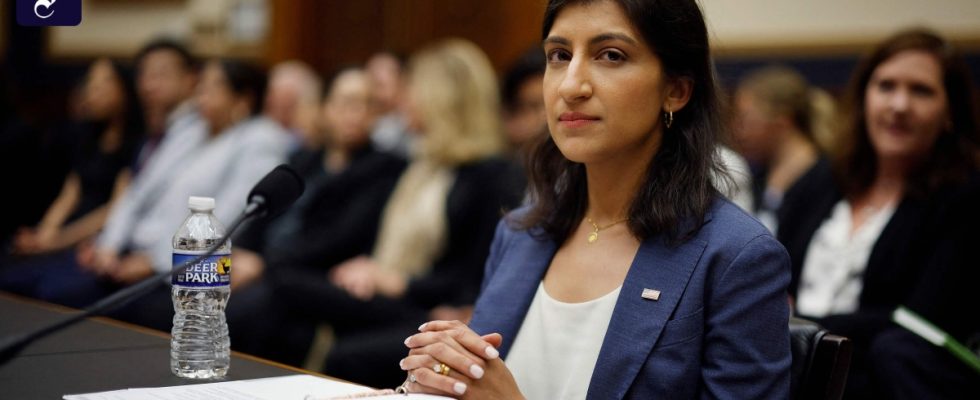fAmerica’s top competition watchdog, Lina Khan, is set to come full circle in August. Then the 34-year-old head of the American competition authority wants to take the technology group Amazon to court for anti-competitive behavior. In the extreme case, the online retailer faces the forced spin-off of parts of its business.
Amazon was the company that inadvertently helped Khan launch her meteoric career in American politics. In 2017, while still a law student, she published a groundbreaking essay on the group’s problematic market power.
The interpretation of antitrust law, Khan argued at the time, had not kept pace with the reality of the digital world. The essay provided an analytical basis for the general malaise of progressive circles with the power of Internet companies. Khan has been the head of the FTC competition authority since 2021.
FTC against Amazon, this is not an isolated case, but another of many spectacular disputes between cartel watchdogs and large companies. Behind this is that something has changed fundamentally in the way politicians deal with large corporations. Not only in America.
New procedures also in Europe
The FTC met with the Facebook group Meta in court in January. Microsoft has been fighting to buy video game maker Activision Blizzard for months – against opposition from the FTC and its British peers. In January, the FTC also took action against Google, for the second time in two years. Since then there has even been a possible spin-off of parts of the company.
This side of the Atlantic there is also more fire in the antitrust proceedings than usual. The Vice President of the EU Commission responsible for the digital economy, the Danish Margrethe Vestager, is bluntly threatening to break up Google. In June, she took action against the company for its online advertising business.
Further procedures against Google are already running because of its search engine service and its smartphone operating system Android. Since this week, the EU has also been investigating Microsoft for the first time in a long time because of unfair market advantages for its news app teams.
The fact that the proceedings are now accumulating in this way is an expression of a change in the antitrust authorities that has been in the pipeline for a long time – and the consequences of which are now becoming more and more obvious.
Even with low prices, market power can cause problems
The antitrust authorities have always struggled with the big tech companies. It can hardly be denied that Amazon, Google & Co. dominate their respective markets. But competition watchdogs and judges traditionally look at the disadvantage customers have as a result of market power. The easiest way to prove this is by looking at inflated prices. But if Amazon delivers products faster and cheaper than the competition, if Google even makes its services available for free, then that’s not a disadvantage for customers.
Nevertheless, market power can become a problem. Because the tech companies build platforms with all their peculiarities. Amazon treats its end customers well because competition is fierce in this market. In the past, however, Amazon’s handling of its own employees in the warehouses and of third-party dealers on its platform was problematic.

